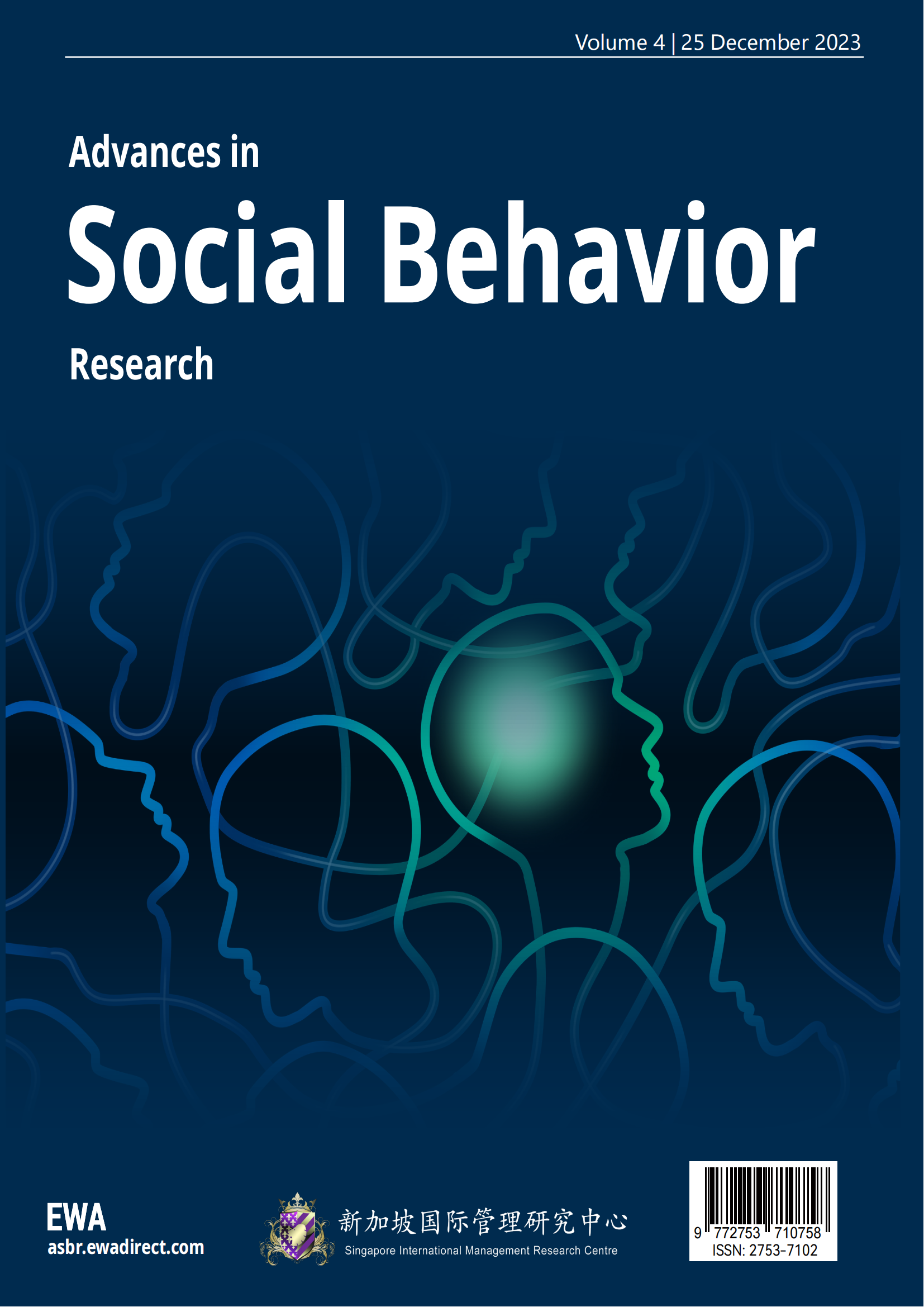1 Introduction
Reading comprehension is the skill of reading, processing and understanding text. It depends on the connected abilities that include word reading (decoding symbols) and language comprehension (understanding words and sentences). Reading comprehension goes beyond knowing words and recognizing them. It involves understanding and interpreting the meanings of the text. When students use reading comprehension skills, they transform words into thoughts and ideas but some students face some problems in comprehending narrative text due to both vocabulary difficulties and the way the way story was story is structured. In simple terms, students should develop strong reading skills to be able to comprehend various types of texts including narrative. This research has focused on the Perception of third-year English students at QUEST, Pakistan on reading comprehension and their problems in reading the text.
1.1 Rational of the study
Reading comprehension involves the skill of understanding and processing text to grasp the actual meaning. While comprehending the text, students are affected by their skills, including the ability to make inferences. Not only this but word recognition is also regarded as a big challenge; students may expend excessive processing capacity on individual words which bumpers their overall comprehension.
2 Literature Review
Reading is one of the most important language skills that involves reading text and looking at the exact meaning of the text. In addition, the art of seeking and recognizing the words by the readers while reading text can lead them to comprehend the ideas, learn new words, study how words are used, learn how to apply grammatical rules, and gain knowledge or information in reading comprehension.
However, Jayanti [10] discovered that the teacher will benefit from knowing the students' perceptions of reading difficulty since it will assist them to create activities tasks that are appreciated for dealing with the students' reading difficulties. Therefore, this research focused on the Perception of third-year English students at QUEST, Pakistan on reading comprehension and the problematic aspects of reading comprehension that students face.
2.1 Reading comprehension perceptions
Jayanti [10] investigated student’s perception of reading. The main research objective was to find students' perceptions towards difficulty in reading textbooks. The ability to read is a crucial aspect of success in terms of reading which is highly valued and plays a significant role in social and educational developments.
Ahmadi [1] emphasized that when learning to read, students need to understand every single component of the sentences or paragraph, but rather grasp the overall messages the writers intend to communicate. Channa et al [4] investigated the meta-cognitive strategies used in reading comprehension of engineering students in Pakistan to find their behaviors and to develop reading comprehension.
According to Vindy and Carla [15], teachers should gain knowledge about students’ challenges to assist them in improving their reading comprehension. According to Codington et al [5], the findings indicated that students’ perceptions played a role in predicting reading difficulties and assessing their reading performances. The simpler terms, students, and teachers' understanding of students' perceptions can help assess the teaching and learning process teachers can address students' reading difficulties by offering appropriate solutions, such as engaging in activities like jigsaw and peer tutoring,
Channa et al [4] investigated the perceptions of students in terms of reading comprehension in various classes for a variety of purposes including the narratives text and expository text.
Similarly, many studies including [4]; [6]; [12]; [11]; [15] & and [3] examined students' perceptions of reading difficulties in narrative texts reading difficulties in general, pre-reading activities and reading motivation in particular.
2.2 Reading comprehension problems
Since English in Pakistan is a foreign language, there is a chance that English language learners experience reading comprehension issues. This might be due to poor word identification and word recognition along with other factors that include the wrong meaning of the text and incorrect use of grammar. According to Sari [13], there are various issues that students frequently encounter while reading text that are not in their native language particularly when they attempt to find the exact meaning. These factors include poor reading, the lack of lexicon, the lack of reading practice in class at the university level, poor knowledge of grammar and weak knowledge of sentence structure. All of these issues are most likely brought on by the fact that English is not the native language in Pakistan and students suffer in terms of vocabulary knowledge, their inability to understand grammar or text structure, and their passive reading behavior towards English reading texts for understanding purposes.
The students are the pillars who can identify as well as understand reading issues and reading problems. However, Gunning [8] categorizes reading issues into five categories: language knowledge difficulties, lack of prior information, lack of motivation, poor reading strategy and lack of reading awareness. It implies that there are several facets of reading challenges that students experience, not just one, that contribute to their difficulties with understanding.
On the other hand, students struggle with reading comprehension and fail if they are not engaged in the subject matter. On the other hand, if the students are truly interested in the subject, it might become a significant element since positive motivation is vital for the development of reading comprehension and can encourage learners to read about other subjects. Various other issues with reading comprehension include the wrong method of reading utilized by the learners, readers with poor reading strategies, and reading process issues or a circumstance where students lose focus before finishing the text. According to Alderson [2], readers occasionally seem to forget what they have already read and must go back and reread it. In conclusion, various elements of reading issues might impair learners’ ability to comprehend what they read.
3 Research Method
This study used a survey questionnaire for the collection of data.
Haughn [9] believed that survey research can be useful to collect the views, ideas and thoughts of chosen sets of characters. Similarly, Creswell [4] asserted that the quantitative research design is regarded as quantitative research based on a sample or the population to describe the attitudes, opinions, behaviors, or characteristics of the population. The researcher used random sampling.
3.1 Participant and Instruments
This study involved participants as a sample of the 3rd year BS English students of QUEST, Nawabshah in the academic year 2023. The researcher selected 24 students by using a random sampling method [14].
3.2 Data Collection and Data Analysis
The data was collected through a questionnaire which was developed by the researchers based on a 5 Likert scale to know reading perception and reading problems. The data was analyzed via Microsoft Excel by mentioning it through percentage.
4 Findings
The findings of this study are based on the following research objectives:
1 To find the Perception of third-year English students at QUEST, Pakistan on reading comprehension.
2 To focus on the problems of third-year English students at QUEST, Pakistan in reading text.
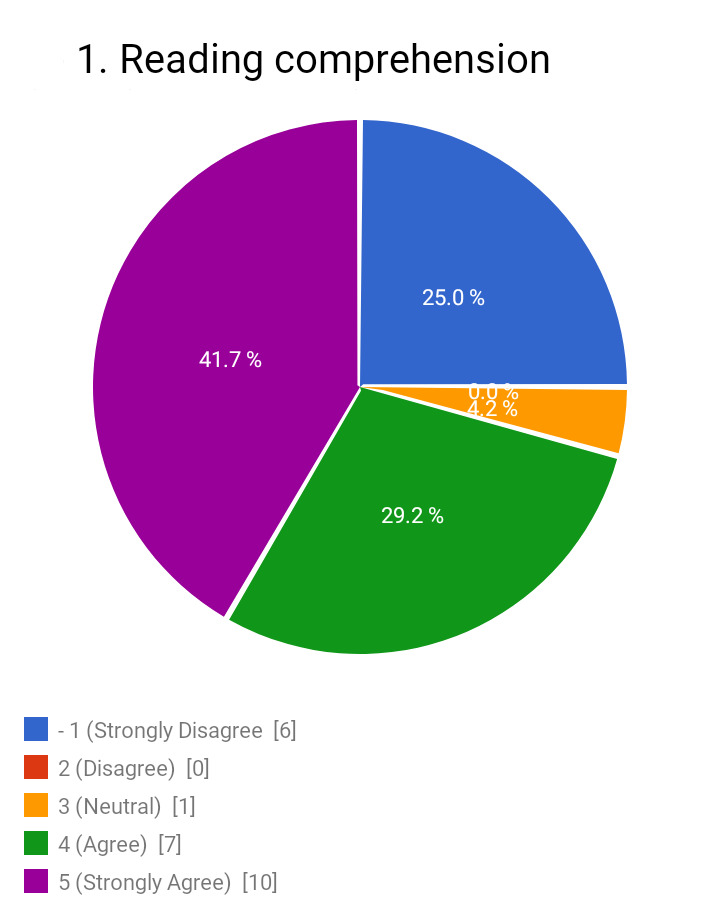
Figure 1: Reading comprehension is an important skill for academic success
The chart indicates almost 10 students with 41.7% strongly agreeing and 7 students with 29.2% preferred agreeing on the option. However, almost 6 students with 25% strongly disagreed and 1 student with 4.2% remained neutral.
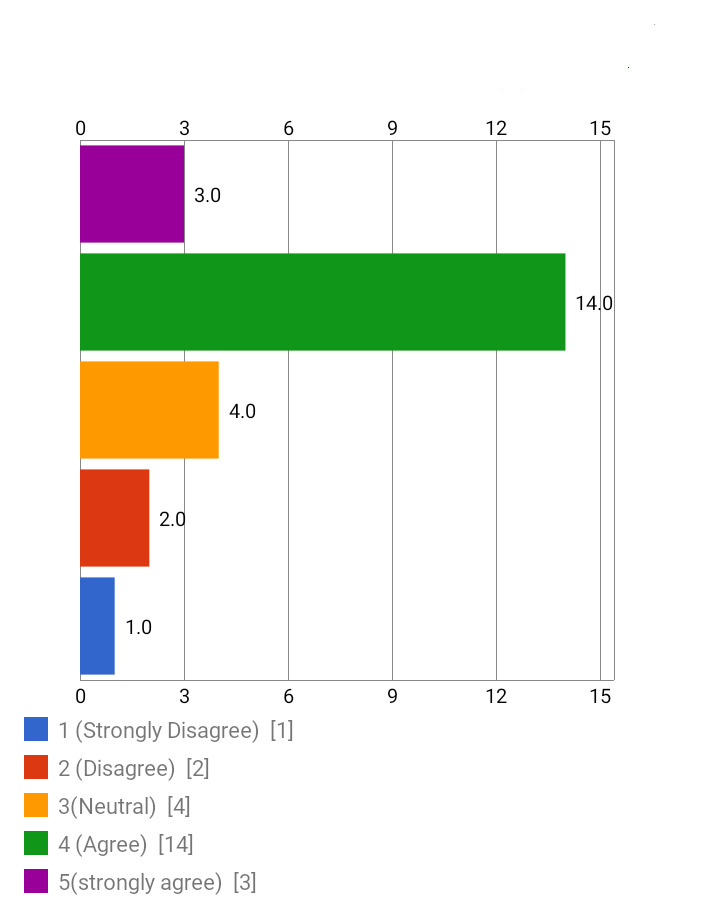
Figure 2: I feel confident in my ability to understand and analyze complex texts
The bar indicates almost 14 students chose to agree and 3 students preferred the strongly agree option. However, almost 1 student strongly disagreed and 2 students selected agreed. Similarly, 4 students remained neutral.
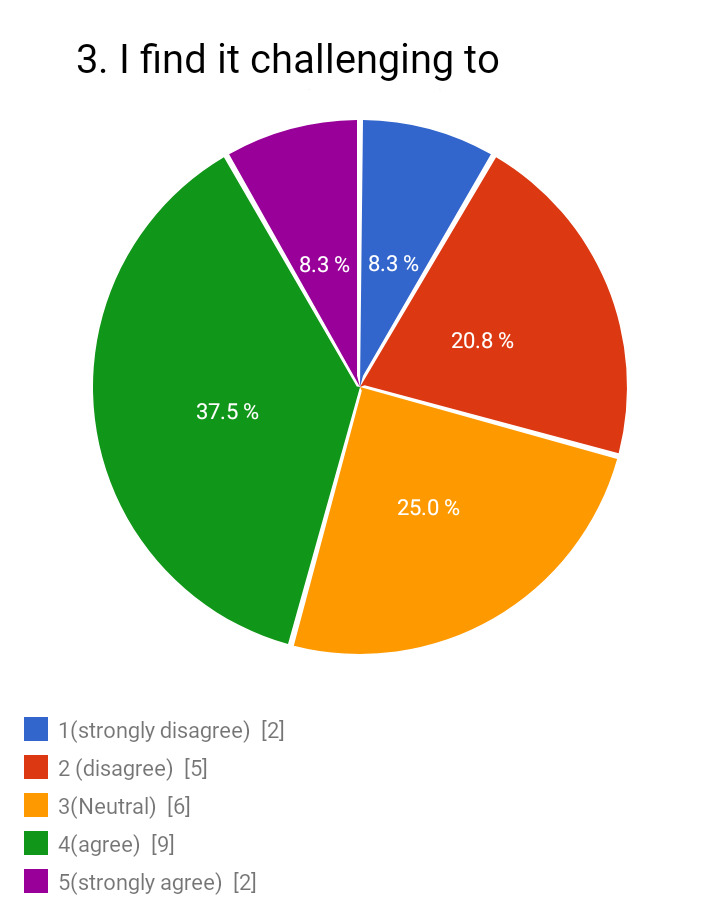
Figure 3: I find it challenging to concentrate while reading.
The chart indicates almost 2 students with 8.3% chose strongly agree and 9 students with 37.5% preferred agree option. However, almost 2 students with 8.3% strongly disagreed and 5 students with 20.8% remained disagreed. Similarly, 6 students with 25% remained neutral.
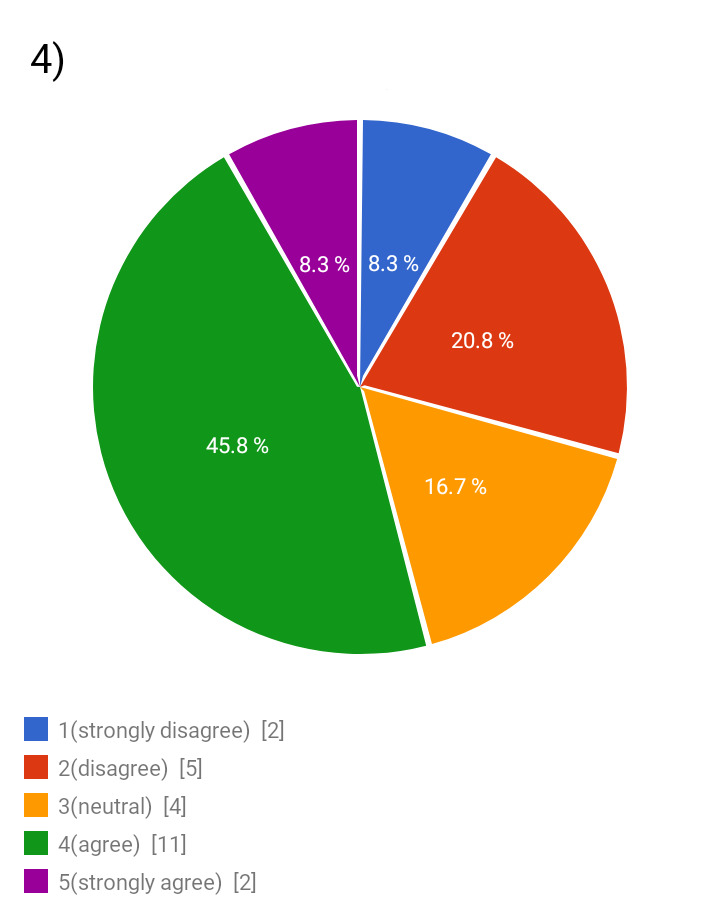
Figure 4: I often struggle with understanding the main ideas of a reading passage
The chart indicates almost 2 students with 8.3% chose strongly agree and 11 students with 45.8% preferred agree option. However, almost 2 students with 8.3% strongly disagreed and 5 students with 20.8% remained disagreed. Similarly, 4 students with 16.7% remained neutral.
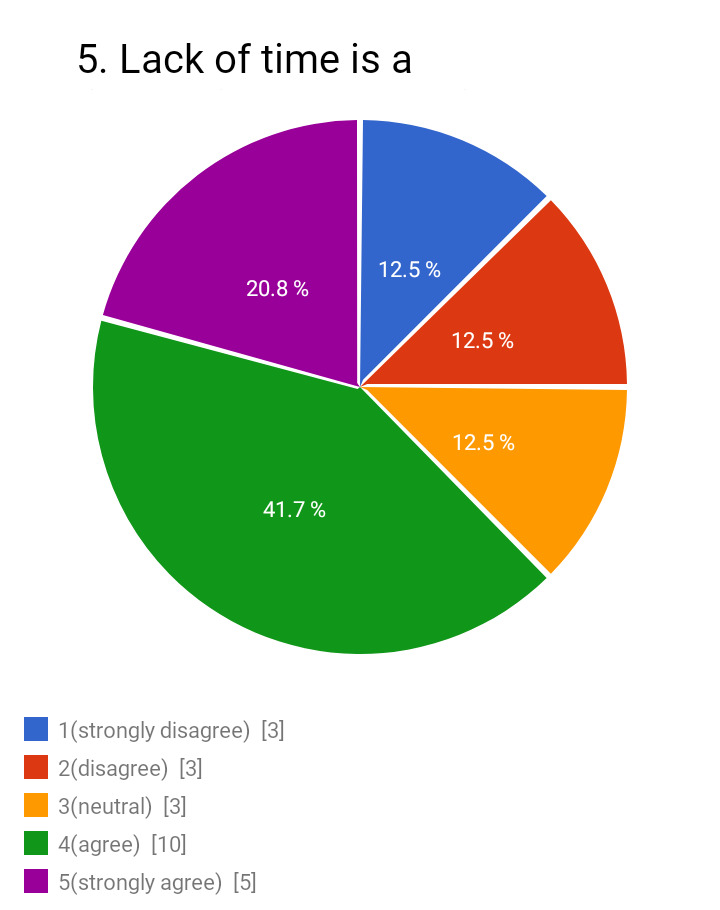
Figure 5: Lack of time is a major barrier to my reading comprehension improvement
The chart indicates almost 5 students 20.8% strongly agree and 10 students with 41.7% preferred the agree option. However, almost 3 students with 12.5% strongly disagreed and 3 students with 12.5% remained disagreed. Similarly, 3 students with 12.5% remained neutral.
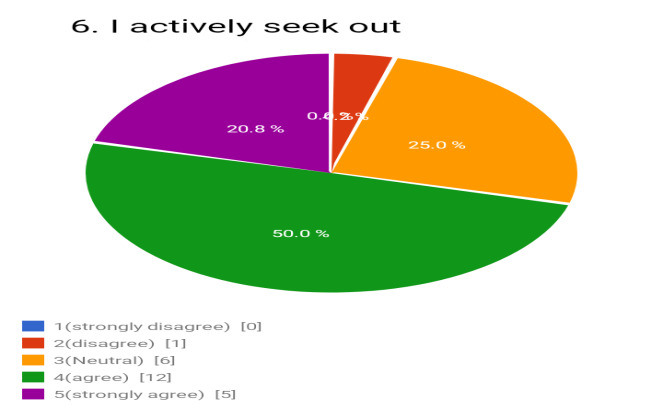
Figure 6: I actively seek out strategies to improve my reading comprehension skills
The chart indicates almost 5 students with 20.8% strongly agreed and 12 students with 50% preferred the agree option. However, almost 1 student with 4.2% disagreed and 6 students with 25% remained neutral.
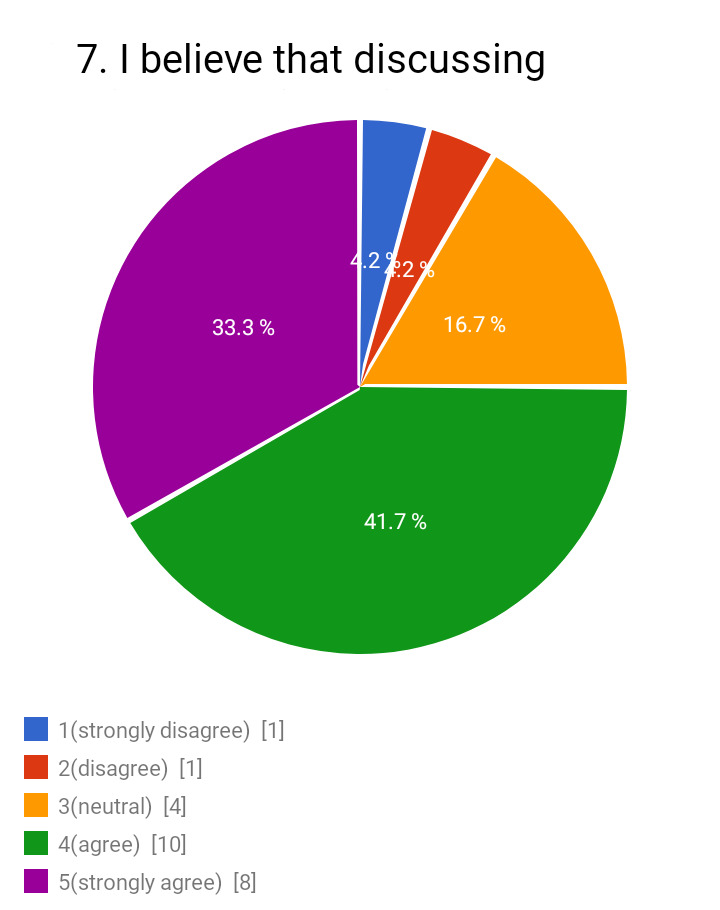
Figure 7: I believe that discussing reading materials with peers can enhance comprehension
The chart indicates almost 8 students 33.3% strongly agree and 10 students with 41.7% preferred to agree option. However, almost 1 student with 4.2% strongly disagreed and 1 student with 4.2% remained disagreed. Similarly, 4 students with 16.7% remained neutral.
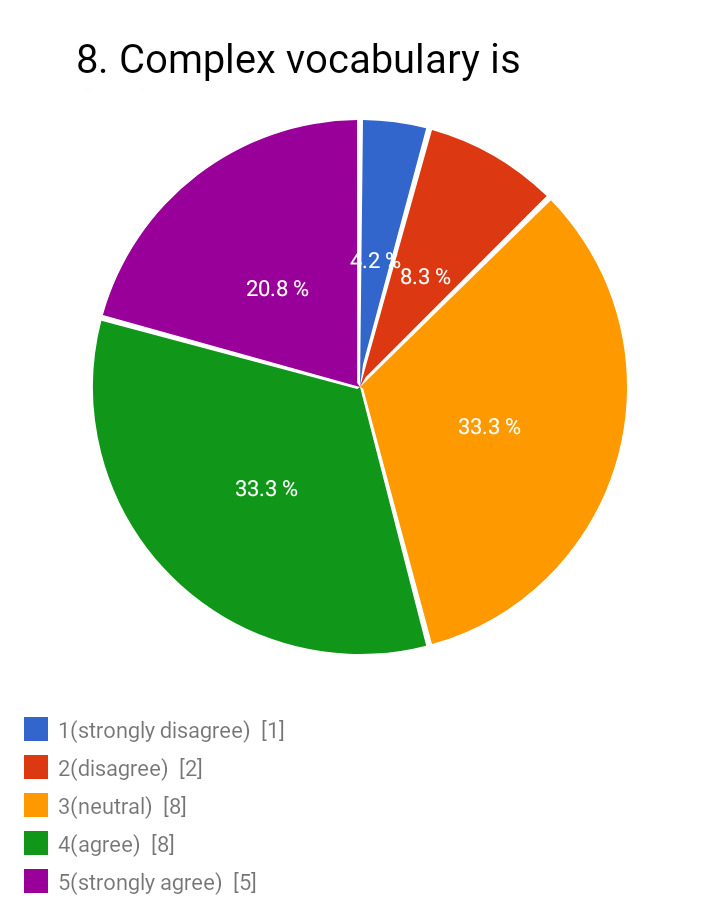
Figure 8: Complex vocabulary is a significant obstacle to my reading comprehension
The chart indicates almost 5 students with 20.8% strongly agree and 8 students with 33.3% preferred the agree option. However, almost 1 student with 4.2% strongly disagreed and 2 students with 8.3% remained disagreed. Similarly, 8 students with 33.3% remained neutral.
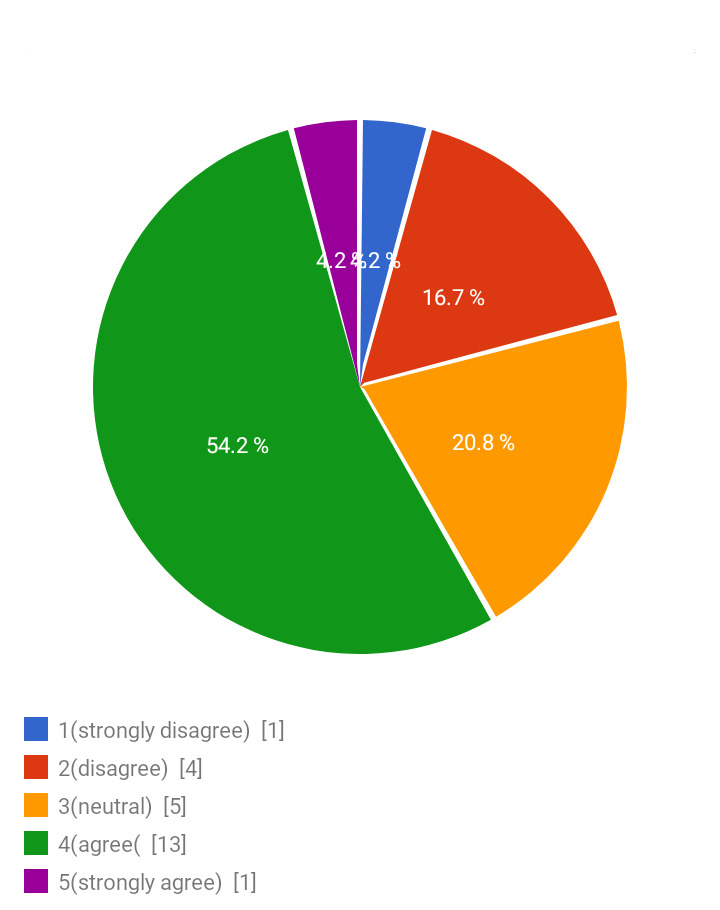
Figure 9: I find it difficult to summarize what I've read effectively
The chart indicates almost 1 student 4.2% chose strongly agrees and 13 students with 54.2% preferred agree option. However, almost 1 student with 4.2% strongly disagreed and 4 students with 16.7% disagreed. Similarly, 5 students with 20.8% remained neutral.
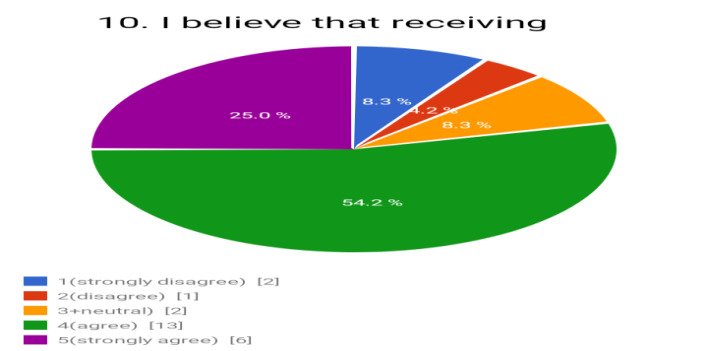
Figure 10: I believe that receiving guidance and feedback from teachers can help me improve my reading comprehension
The chart indicates almost 6 students 25% strongly agree and 13 students 54.7% preferred the agree option. However, almost 2 students with 8.3% strongly disagreed and 1 student with 4.2% remained disagreed. Similarly, 2 students with 8.3% remained neutral.
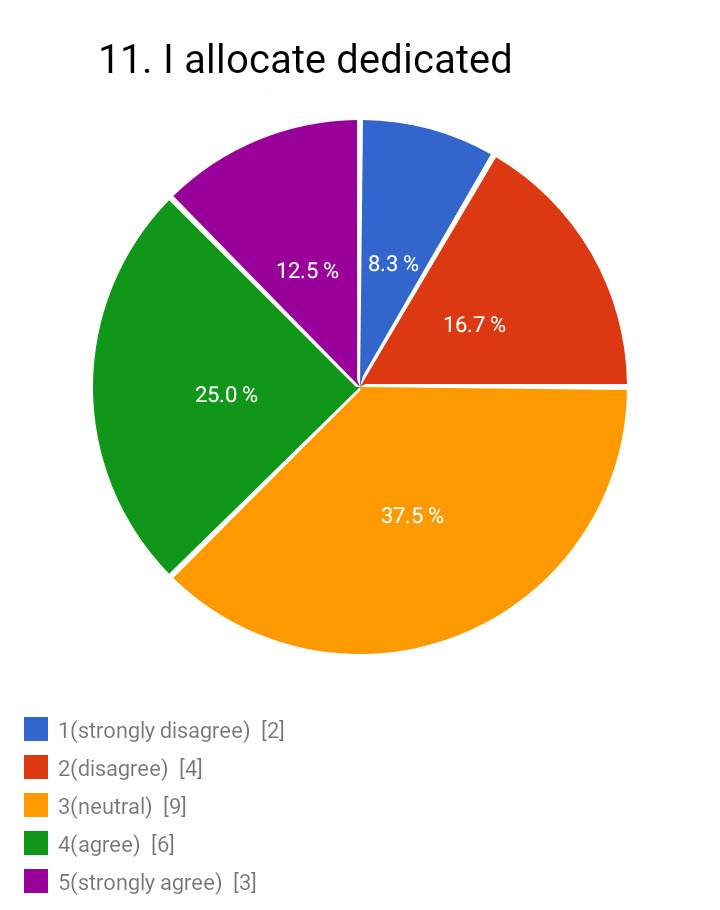
Figure11: I allocate dedicated time for reading and comprehension practice regularly
The chart indicates almost 3 students with 12.5% strongly agree and 6 students with 25% preferred the agree option. However, almost 2 students with 8.3% strongly disagreed and 4 students with 16.7% remained disagreed. Similarly, 9 students with 37.5% remained neutral.
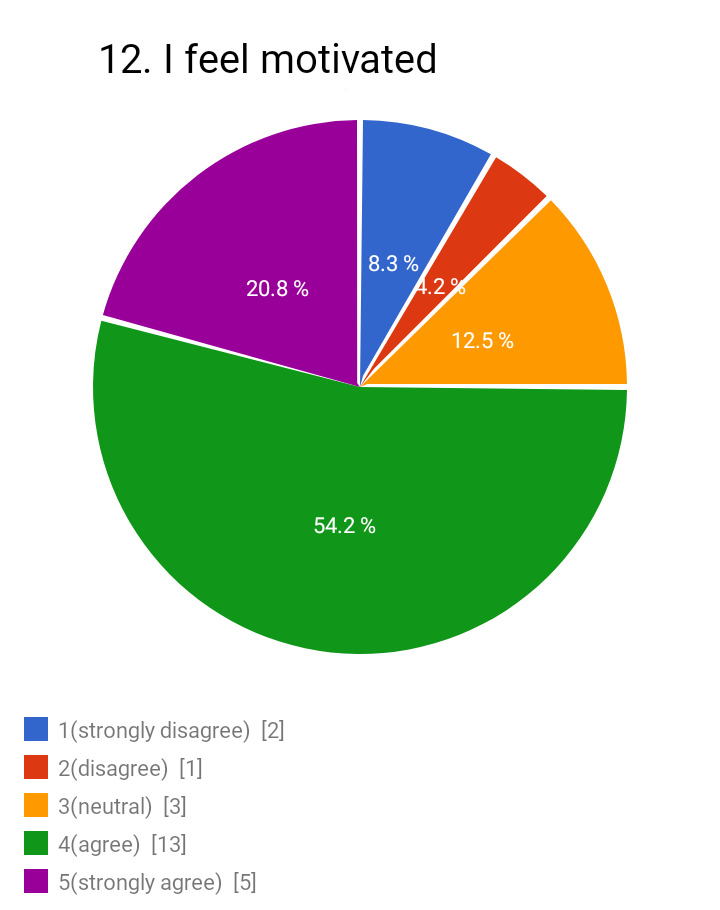
Figure 12: I feel motivated to overcome reading comprehension challenges.
The chart indicates almost 5 students with 20.8% strongly agree and 13 students with 54.2% preferred the agree option. However, almost 2 students with 8.3% strongly disagreed and 1 student with 4.2% remained disagreed. Similarly, 3 students with 12.5% remained neutral.
5 Conclusion
To conclude, this study agrees with the research of Zuhra [16] which pinpoints the characteristics contributing to understanding English reading. According to Zuhra [16], the dilemma in reading is being caused by the way of students’ context, teaching methods, and learning environment. As opposed to that, the capacity to comprehend a text is the ultimate objective of all reading. It implies because good comprehension of the reading text is necessary for reading to be successful, understanding what they are reading is not always a simple task. In this situation, the teacher should develop enhance or keep the plan for teaching reading. The results indicated that students who better understand the materials can make well process by following different reading strategies. The results also indicated that teachers should use reading strategies to help students for the comprehension of the text.
References
[1]. Ahmadi, M. R. (2017). The impact of motivation on reading comprehension. International journal of Research in English Education , 2(1), 1-7, doi: 10.18869/acadpub.ijree.2.1.1
[2]. Alderson, J. C. (2000). Assessing Reading. Cambridge: Cambridge University Press.
[3]. Brown. C. A., Kreag D. & David T. (2016). Student perceptions on using guided reading questions to motivate student reading in the flipped classroom. Accounting Education, 23-33, doi: 10.1080/09639284.2016.1165124
[4]. Channa, M. A., Abbasi, A. M., Bhatti, T. N., Naizi, S. and Juinaid, S. (2023). Exploring Metacognitive Scaffolding in Reading Comprehension among Engineering undergraduates. Journal of Positive School Psychology, 7(1), 1856-1867.
[5]. Coddington, C. S. & Guthrie J. C. (2009). Teacher and student’s perceptions of boys’ and girls’ reading motivation. Reading Psychology, 30(1), 225–249, doi: 10.1080/02702710802275371
[6]. Creswell, J.W. (2012). Educational research: Planning, conducting, and evaluating quantitative and qualitative research (4th ed.). Boston: Pearson Education, Inc.
[7]. Dickens, R. H., & Elizabeth B. M. (2017). Examining the effects of reading modality and passage genre on reading comprehension in middle school students. Reading Psychology, 38(3), 321-347, doi: 10.1080/02702711.2016.1263701
[8]. Gunning, T. G. (2002). Assessing and correcting reading and writing difficulties. Boston: Allyn & Bacou.
[9]. Haughn, M. (2017). Survey study. Retrieved on July 20, 2019, from https://whatis.techtarget.com/definition/survey-research
[10]. Jayanti, F. G. (2016). Reading difficulties: comparison on students’and teachers’ perception. Proceedings of the Fourth International Seminar on English Language and Teaching, 4(1), 296-301, doi: 10.25157/jall.v3i2.2537
[11]. Margaret, E. P., Adrianna, W., Gil, N., Maryanne, W., & Tami, K. (2013). Behavioral problems and reading difficulties among language minority and monolingual urban elementary school students. Reading Psychology, 34(2), 182-205, doi: 10.1080/02702711.2011.626108
[12]. Repaskey, L. L., Jeanne S., & Jacqueline, J. (2017). First and fourth grade boys' and girls' preferences for and perceptions about narrative and expository text. Reading Psychology, 1-10. doi: 10.1080/02702711.2017.1344165
[13]. Sari, R. A. (2013). Students’ perception toward their reading difficulties of different genres. Lingua Dikdatika: Jurnal Bahasa dan Pembelajaran Bahasa, 7(1), 44- 57, doi: 10.24036/ld.v7i1.3531
[14]. Setia, M. S. (2016). Methodology series module 5: Sampling strategies. Indian J Dermatology, 61(5), 505-509. doi: 10.4103/0019-5154.190118
[15]. Vindy C. & Carla S. P. (2015). Students’ perception on pre-reading activities in basic reading II class of the English language education study program of Sanata Dharma University. A Journal on Language and Language Teaching, 18(2), 133-140, doi: 10.24071/llt.2015.180206
[16]. Zuhra. (2015). Senior high school students’ difficulties in reading comprehension. English Education Journal (EEJ), 6(3), 424-44, Retrieved on February 20, 2019 from http://jurnal.unsyiah.ac.id/EEJ/article/view/2584
Cite this article
Mansoor,E.;Chandio,F.;Jamali,I.;Jamali,R.;Jamali,E. (2023). Investigating Reading Comprehension and Its Problems: The Perceptions Of 3rd Year English Students, Quest, Pakistan. Advances in Social Behavior Research,4,31-40.
Data availability
The datasets used and/or analyzed during the current study will be available from the authors upon reasonable request.
Disclaimer/Publisher's Note
The statements, opinions and data contained in all publications are solely those of the individual author(s) and contributor(s) and not of EWA Publishing and/or the editor(s). EWA Publishing and/or the editor(s) disclaim responsibility for any injury to people or property resulting from any ideas, methods, instructions or products referred to in the content.
About volume
Journal:Advances in Social Behavior Research
© 2024 by the author(s). Licensee EWA Publishing, Oxford, UK. This article is an open access article distributed under the terms and
conditions of the Creative Commons Attribution (CC BY) license. Authors who
publish this series agree to the following terms:
1. Authors retain copyright and grant the series right of first publication with the work simultaneously licensed under a Creative Commons
Attribution License that allows others to share the work with an acknowledgment of the work's authorship and initial publication in this
series.
2. Authors are able to enter into separate, additional contractual arrangements for the non-exclusive distribution of the series's published
version of the work (e.g., post it to an institutional repository or publish it in a book), with an acknowledgment of its initial
publication in this series.
3. Authors are permitted and encouraged to post their work online (e.g., in institutional repositories or on their website) prior to and
during the submission process, as it can lead to productive exchanges, as well as earlier and greater citation of published work (See
Open access policy for details).
References
[1]. Ahmadi, M. R. (2017). The impact of motivation on reading comprehension. International journal of Research in English Education , 2(1), 1-7, doi: 10.18869/acadpub.ijree.2.1.1
[2]. Alderson, J. C. (2000). Assessing Reading. Cambridge: Cambridge University Press.
[3]. Brown. C. A., Kreag D. & David T. (2016). Student perceptions on using guided reading questions to motivate student reading in the flipped classroom. Accounting Education, 23-33, doi: 10.1080/09639284.2016.1165124
[4]. Channa, M. A., Abbasi, A. M., Bhatti, T. N., Naizi, S. and Juinaid, S. (2023). Exploring Metacognitive Scaffolding in Reading Comprehension among Engineering undergraduates. Journal of Positive School Psychology, 7(1), 1856-1867.
[5]. Coddington, C. S. & Guthrie J. C. (2009). Teacher and student’s perceptions of boys’ and girls’ reading motivation. Reading Psychology, 30(1), 225–249, doi: 10.1080/02702710802275371
[6]. Creswell, J.W. (2012). Educational research: Planning, conducting, and evaluating quantitative and qualitative research (4th ed.). Boston: Pearson Education, Inc.
[7]. Dickens, R. H., & Elizabeth B. M. (2017). Examining the effects of reading modality and passage genre on reading comprehension in middle school students. Reading Psychology, 38(3), 321-347, doi: 10.1080/02702711.2016.1263701
[8]. Gunning, T. G. (2002). Assessing and correcting reading and writing difficulties. Boston: Allyn & Bacou.
[9]. Haughn, M. (2017). Survey study. Retrieved on July 20, 2019, from https://whatis.techtarget.com/definition/survey-research
[10]. Jayanti, F. G. (2016). Reading difficulties: comparison on students’and teachers’ perception. Proceedings of the Fourth International Seminar on English Language and Teaching, 4(1), 296-301, doi: 10.25157/jall.v3i2.2537
[11]. Margaret, E. P., Adrianna, W., Gil, N., Maryanne, W., & Tami, K. (2013). Behavioral problems and reading difficulties among language minority and monolingual urban elementary school students. Reading Psychology, 34(2), 182-205, doi: 10.1080/02702711.2011.626108
[12]. Repaskey, L. L., Jeanne S., & Jacqueline, J. (2017). First and fourth grade boys' and girls' preferences for and perceptions about narrative and expository text. Reading Psychology, 1-10. doi: 10.1080/02702711.2017.1344165
[13]. Sari, R. A. (2013). Students’ perception toward their reading difficulties of different genres. Lingua Dikdatika: Jurnal Bahasa dan Pembelajaran Bahasa, 7(1), 44- 57, doi: 10.24036/ld.v7i1.3531
[14]. Setia, M. S. (2016). Methodology series module 5: Sampling strategies. Indian J Dermatology, 61(5), 505-509. doi: 10.4103/0019-5154.190118
[15]. Vindy C. & Carla S. P. (2015). Students’ perception on pre-reading activities in basic reading II class of the English language education study program of Sanata Dharma University. A Journal on Language and Language Teaching, 18(2), 133-140, doi: 10.24071/llt.2015.180206
[16]. Zuhra. (2015). Senior high school students’ difficulties in reading comprehension. English Education Journal (EEJ), 6(3), 424-44, Retrieved on February 20, 2019 from http://jurnal.unsyiah.ac.id/EEJ/article/view/2584





